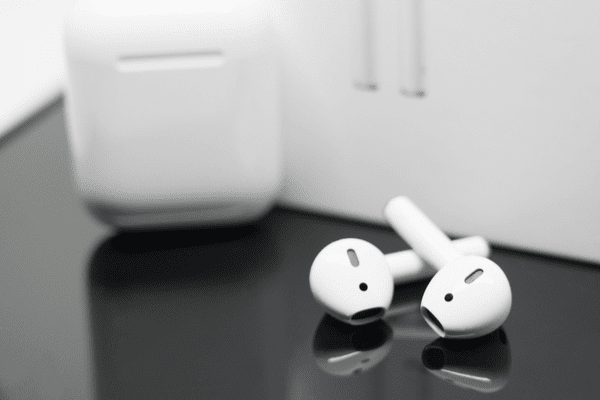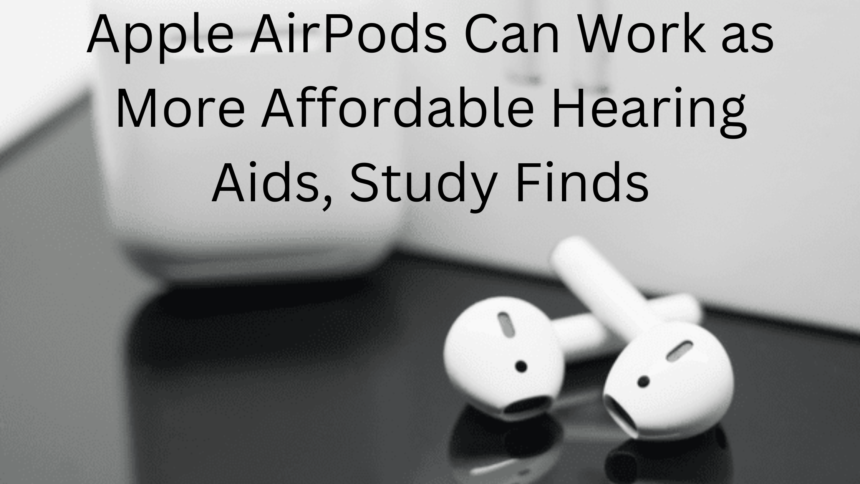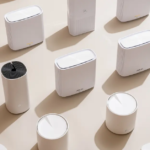A new study that was published in the journal iScience revealed that adults with mild to moderate hearing loss may benefit from using Apple’s AirPods Pro earbuds as hearing aids.Researchers from Taiwan’s Taipei Veterans General Hospital carried out the study.21 people with mild to moderate hearing loss were examined by experts, and a variety of hearing aids were put through their paces.These included AirPods Pro and AirPods 2, as well as premium and basic hearing aids.

Features
By 2060, the number of Australians with hearing loss is expected to double. This is especially concerning given that only about 25% of older adults who would benefit from hearing aids actually have access to the costly equipment or are willing to use it.
A new study has discovered that Apple’s wireless earbuds can be a more affordable and accessible sound amplification device. However, they are not a perfect substitute.At least in Australia, it is hoped that over-the-counter hearing aids will make these devices more accessible. However, based on the few companies that have already announced OTC sound amplification devices, these could still cost well over $1,000.
Additionally, they do not address other obstacles to the adoption of hearing aids, such as social stigmas associated with the devices’ association with older people.Motivated by a component called Live Listen delivered in 2016 by Macintosh, which permits an iPhone or iPad to be utilized as sound-helping mouthpiece, specialists from the Taipei Veterans General Emergency clinic puzzled over whether the presentation of AirPods 2 and the first AirPods Master utilizing this element could contrast with clinical portable hearing assistants.Apple does not advertise Live Listen as a tool for people with hearing loss; rather, the company describes it as a way for people with normal hearing to enhance desired sounds, such as bird calls.
However, the researchers discovered that consumer-level personal sound amplification products performed quite well in some situations when compared to more expensive medically prescribed solutions. Furthermore, given the popularity of products like Apple’s AirPods, wearing them is not frowned upon.The $AU219 AirPods 2 and $AU399 AirPods Pro were put through their paces when tested with iPhone XS Max smartphones running iOS 13.They compared these to the behind-the-ear OTICON Opn 1 ($10,000) and a less expensive option, the Bernafon MD1 ($1,500)21 participants with mild to moderate hearing loss were asked to repeat short sentences read to them by the researchers in a variety of settings to evaluate the four options.
The AirPods 2 performed the worst of all four devices tested, but they still helped participants hear what was being read to them more clearly than using no sound-enhancing device at all. In a quiet environment, the AirPods Pro performed as well as the cheaper hearing aids and nearly as well as the premium model.
Due to their built-in noise cancellation, the AirPods Pro performed even better than the premium hearing aid model in a noisy environment, but only when the participant’s sides were making distracting noises.Both wireless earbud products failed to help improve what was being heard when the noise was coming from the front and the researchers were reading sample sentences.The research demonstrates that there was a legitimate reason why the market for hearing aids did not vanish when wireless earbuds began to dominate.
Prescription hearing aids still outperform even earbuds with advanced noise canceling features in a wider range of noisy environments thanks to their advanced microphones and speech-enhancing algorithms.While hearing aids are still the best option for people with hearing loss, a less expensive product like Apple’s AirPods Pro could provide noticeable improvements in hearing and clarity for people with mild-to-moderate hearing loss and serve as a useful alternative until over-the-counter solutions are more readily available and more cost-effective for those with hearing loss.
FAQ
Can people with hearing loss use AirPods?
This is what a study from the Taipei Veterans General Hospital in Taiwan says. It looked at 21 people with mild to moderate hearing loss and compared how well they heard with expensive hearing aids, basic hearing aids, AirPods Pro, and AirPods Gen 2.
Are the Wireless Earbuds from Apple better?
A new study has discovered that Apple’s wireless earbuds can be a more affordable and accessible sound amplification device. However, they are not a perfect substitute.
How much do prescription hearing aids set you back?
At least in the United States, over-the-counter hearing aids will hopefully help make these devices more accessible. However, based on the few companies that have already announced OTC sound amplification devices, these could still cost well over $1,000.
Can features for sound amplification be found in wireless earbuds?
Lai said, “Globally, the market for wireless earphones is expanding rapidly.”Developing earbuds with sound amplification capabilities is a topic of interest to a few businesses.The idea is plausible, as our research demonstrates.”
Conclusion
The study came to the conclusion that the AirPods were still “a good starting point for many patients who don’t have access to professional hearing aids,” despite their flaws.Even with these earbuds, their quality of life will improve.The researchers also stated that wearing AirPods would help patients overcome the fear of looking old and the social stigma associated with hearing aids.









